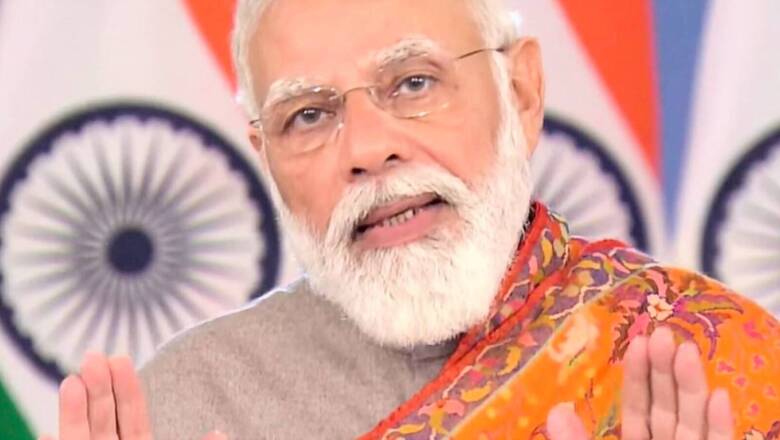
views
Prime Minister Narendra Modi rarely backs down, so his pragmatic decision to jettison the Farm Laws 2020 came as a surprise. Seen through the lens of political expediency, however, it makes eminent sense from several angles.
First, it deprives the Opposition of valuable leverage in the Uttar Pradesh and Punjab elections. Following the weaponization of a car against protesting farmers allegedly by a Union minister’s son, the BJP’s rivals had sought to frame the agitation as a broader anti-Modi movement.
Second, the farmers’ stir is Jat-led and the loss of the powerful farming community’s support in western UP, where they can influence outcomes in 60 Assembly segments, is a matter of concern for the BJP. The party has already lost traction among the Jats of Haryana and Rajasthan, judging by the results of the recent bypolls.
BJP cadres are relieved, as they do not have to go into the Uttar Pradesh (and Punjab) elections with the spectre of Lakhimpur Kheri hanging over their heads, in addition to anti-incumbency and the likely, highly formidable SP-RLD alliance in western UP.
Third, the Sangh frontals, ideologically uncomfortable with the liberalization of agriculture, have been internally voicing their hostility to the Farm Laws. In 2015, likewise, they had compelled the Centre to roll back the Land Acquisition ordinance and had stalled the 2019 Seeds Bill. Needless to say, the support of the Sangh Parivar is vital in UP.
In addition, constant animadversions by the Supreme Court on the failure to prevent protestors from blocking national highways and greatly inconveniencing the public were making the Centre look weak.
Also, jettisoning the Farm Laws could help in luring Captain Amarinder Singh into the NDA fold and thereby avoiding a wipeout in Punjab. To that end, the announcement was strategically delivered on Gurpurab by the PM himself.
Is the rollback of the Farm Laws an overreaction? Outside of Jat land, the farmers’ stir has not had any resonance. Even if it did, the electoral impact would have been marginal, as farmers are not a homogeneous group and vote along lines of caste, class and community. But no party wants the burden of an ‘anti-farmer’ taint and this may have prompted the PM to backpedal.
Agricultural economists will doubtless be dismayed by the decision, as the Farm Laws were seen as a viable way forward for Indian agriculture. Apart from providing private mandis alongside government-run (APMC) ones, the laws eased stock limits and provided a regulatory framework for contract farming.
Resource-rich middlemen, who are invested in maintaining the status quo, reportedly deployed the support of sections of the Opposition and the Indian diaspora to present the reforms as precursors to corporatization of agriculture and dismantling of the MSP system—and therefore, inimical to farmers.
The Bihar ‘no-APMC’ model was cited to denounce the Farm Laws, which actually envisaged the successful Maharashtra ‘APMC + private mandis’ model. The agriculture minister’s efforts to remove misconceptions fell on deaf ears. As PM Modi said, his government’s failure lay in not being able to ‘convince’ farmers of the efficacy of agricultural reforms.
A couple of months into the farmers’ stir, it became obvious that it was not so much about the laws per se, as providing a platform for would-be politicians, non-state players and groups that felt marginalized in the current regime.
For farmer-leaders, the rollback of the laws is a triumphal moment, because it enhances their political clout. They have flexed their muscle for the first time in three decades. Not since Mahendra Singh Tikait occupied the Boat Club lawns in New Delhi have farmer-leaders enjoyed this kind of political relevance.
But for the average farmer, it is a pyrrhic victory. They had nothing to lose from the Farm Laws, and so, have nothing to gain. Dismantling the MSP was never on the table, nor did the laws create scope for a corporate takeover of agriculture, as they had been led to believe. So where’s the win?
The fact is that the farmer-leaders tapped into a wellspring of agrarian discontent over mounting debts, high operational costs of farming and diminishing returns, and channelled it into the protest. The repeal of the laws will not address any of these issues.
The PM has consciously taken the risk of denting his ‘strong leader’ image by yielding to protestors, who have attracted public ire by blocking highways for over a year. More to the point, backing down could open the doors to unruly protests by groups of all hues.
But these are problems for the future. For the moment, the BJP will focus on neutralizing political rivals who have been piggy-backing on the farmers’ agitation in the hope of seducing votebanks.
Bhavdeep Kang is a freelance writer and author of Gurus: Stories of India’s Leading Babas and Just Transferred: the Untold Story of Ashok Khemka. The views expressed in this article are those of the author and do not represent the stand of this publication.
Read all the Latest Opinions here


















Comments
0 comment